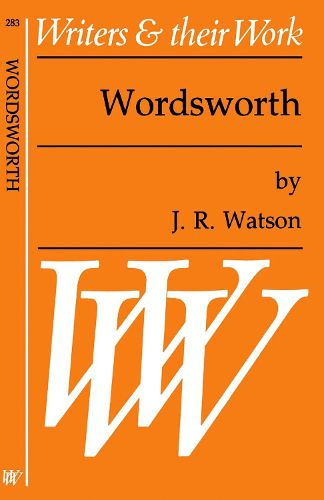Readings Newsletter
Become a Readings Member to make your shopping experience even easier.
Sign in or sign up for free!
You’re not far away from qualifying for FREE standard shipping within Australia
You’ve qualified for FREE standard shipping within Australia
The cart is loading…






The appearance of Wordsworth's and Coleridge's Lyrical Ballads (1798) and of Wordsworth's preface to the second edition (1800) have generally been regarded as the first major landmark of a new era in English literature. The authors announced a fresh approach to poetry, their purpose being 'to throw over incidents taken from common life a certain colouring of the imagination, whereby ordinary things should be presented in an unusual aspect...' In these early poems Wordsworth gives us, as Professor Watson expresses it, 'A poetry the texture of which allows no escape'. He stresses the skill with which Wordsworth varies his language according to the character of each poem, and concludes that the language of Lyrical Ballads should be seen as a whole: we should beware of regarding the more elevated diction of 'Tintern Abbey' as the true voice of Wordsworth, and of writing off the simpler style of the tales. The main part of the essay is devoted to The Prelude, in which the author finds some important points of resemblance to Paradise Lost. Although The Prelude is ostensibly an autobiography, it deals with the loss of the paradise of childhood and in some respects raises the long autobiographical poem to the level of epic. The final section considers the sonnets and The Excursion, Wordsworth's later and more sombre meditation on the central problems of human life. The essay explains in many contexts, both in Wordsworth's prose and his verse, his fundamental conceptions of the poet as a human being who shares the joys and sorrows of all mankind with a more than common enthusiasm.
$9.00 standard shipping within Australia
FREE standard shipping within Australia for orders over $100.00
Express & International shipping calculated at checkout
The appearance of Wordsworth's and Coleridge's Lyrical Ballads (1798) and of Wordsworth's preface to the second edition (1800) have generally been regarded as the first major landmark of a new era in English literature. The authors announced a fresh approach to poetry, their purpose being 'to throw over incidents taken from common life a certain colouring of the imagination, whereby ordinary things should be presented in an unusual aspect...' In these early poems Wordsworth gives us, as Professor Watson expresses it, 'A poetry the texture of which allows no escape'. He stresses the skill with which Wordsworth varies his language according to the character of each poem, and concludes that the language of Lyrical Ballads should be seen as a whole: we should beware of regarding the more elevated diction of 'Tintern Abbey' as the true voice of Wordsworth, and of writing off the simpler style of the tales. The main part of the essay is devoted to The Prelude, in which the author finds some important points of resemblance to Paradise Lost. Although The Prelude is ostensibly an autobiography, it deals with the loss of the paradise of childhood and in some respects raises the long autobiographical poem to the level of epic. The final section considers the sonnets and The Excursion, Wordsworth's later and more sombre meditation on the central problems of human life. The essay explains in many contexts, both in Wordsworth's prose and his verse, his fundamental conceptions of the poet as a human being who shares the joys and sorrows of all mankind with a more than common enthusiasm.